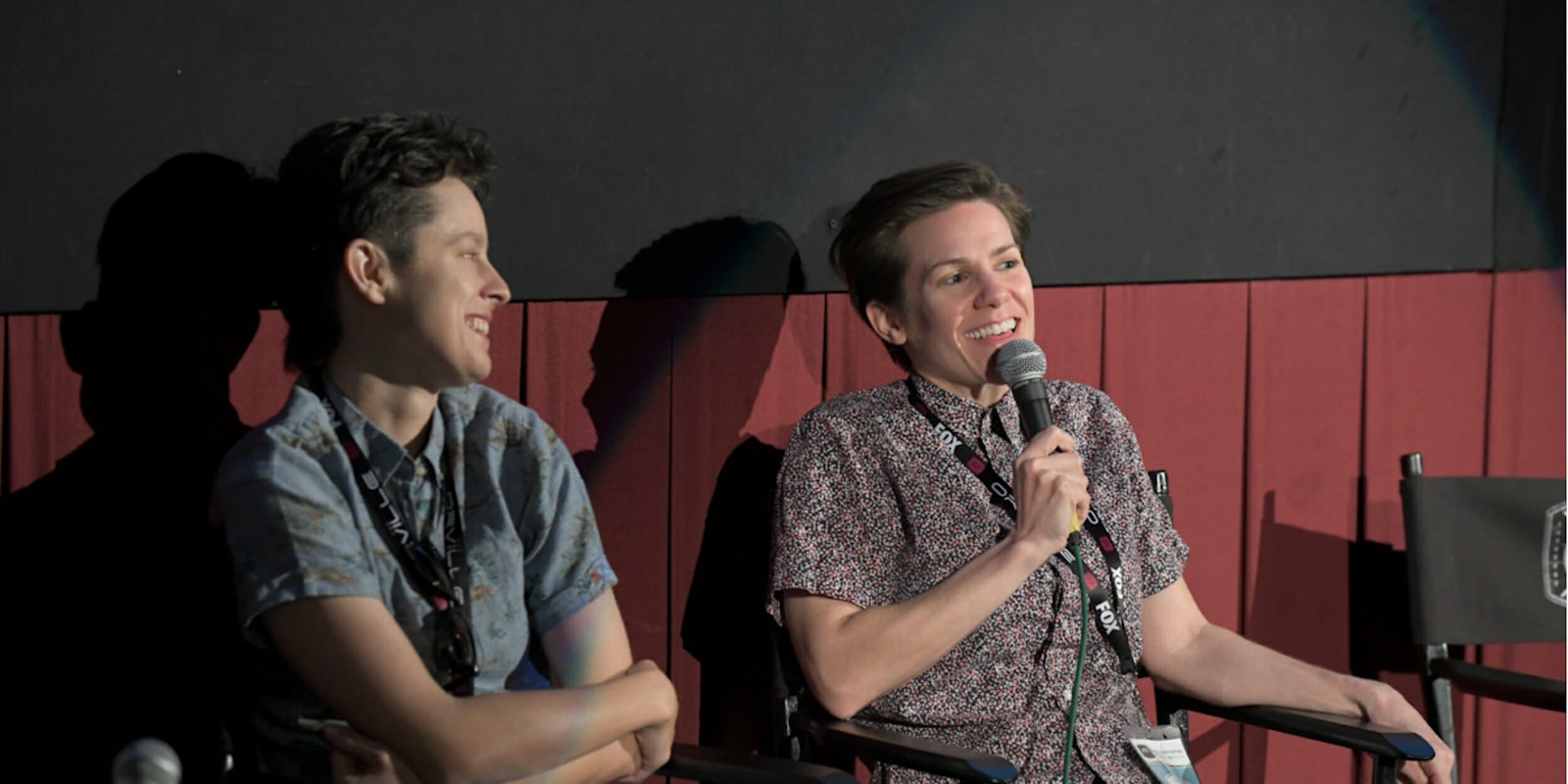In March, season 2 of Take My Wife made its way to iTunes. In May, it landed on the Starz app. It was a long road for the series, created by comedians and real-life married couple Cameron Esposito and Rhea Butcher. The first season debuted on comedy streaming site Seeso in 2016, but season 2 was left in limbo when it shut down in 2017. A fan push, #SaveTakeMyWife, made sure the series—which elevates the voices of queer people, gender non-conforming/non-binary people, and people of color—wasn’t lost.
After a screening of season 2’s standout episode 5 at the ATX Television Festival, in Austin, Texas, Esposito Thursday afternoon said that episode was the “thesis of the show.” Though Esposito and Butcher’s relationship bookends the episode, the bulk of it looks at the microaggressions three comedians face in their everyday life. One queer woman has to explain to her doctor what chest-binding is; a trans woman who works at a call center has to explain to a confused customer why her voice sounds like that. It’s a show about comedians, but also “personhood,” as performer Brittani Nichols says in the episode. A season 1 episode about whether a male comedian can tell rape jokes ends with several comedians essentially saying, “Me too,” and it aired a year before the hashtag became part of a bigger movement. (Esposito is also about to release a new special called Rape Jokes, about her experience as a survivor.)
As Esposito tweeted out last summer, both seasons of Take My Wife had all women in the writers’ room, and season 2 featured 43 percent women of color in the writers’ room, and a cast that was 83 percent female. That viewpoint and representation is important within a landscape that still struggles with parity behind the camera.
Wanted to tell u what having a show on Seeso allowed us to do. I am so proud of #TakeMyWife. pic.twitter.com/UatqOyrPY7
— Cameron Esposito (@cameronesposito) August 9, 2017
Butcher said the show is “about standup and a family business.” In season 1, Butcher’s character was getting used to her wife being more successful and established in comedy, while she was trying to find her voice. In season 2, there is still tension between the two as they plan their wedding, but they wanted to expand the series beyond just their experience, and that opens up Take My Wife to a range of experiences not typically seen on TV.
“Lucy Loves Lucy” was the broad pitch for the series, Esposito said after the screening. When Seeso approached them about making the show, it was initially going to be a sketch show, but then it grew into a scripted series. Esposito points out how rare it is for a studio to not only allow the show to totally change formats but accept that it would also cost more to make. Episode 5 was also Butcher’s first time directing, and many of the show’s writers were first-timers who just needed to get a foot in the door, but they were also allowed to write their own experiences, which still feels rare, but is important.


